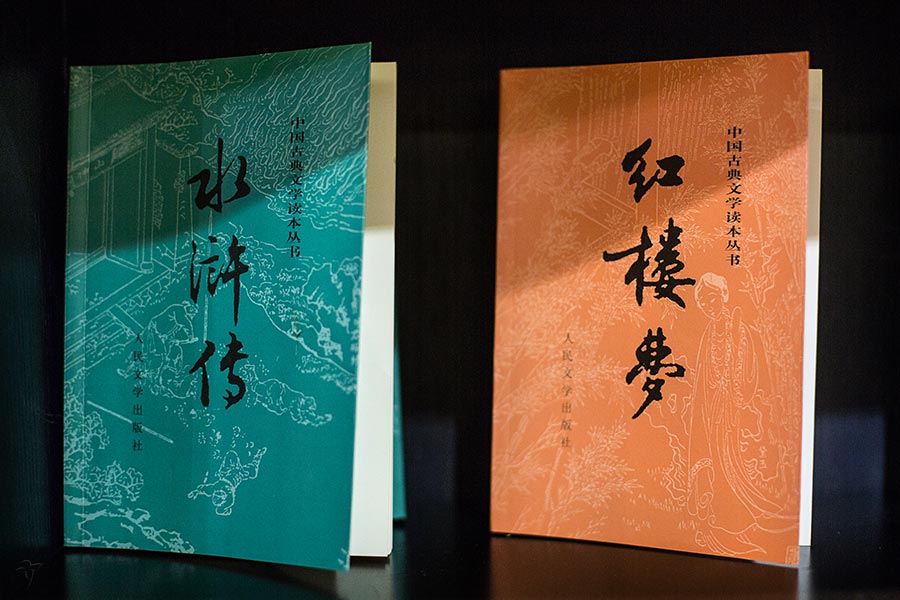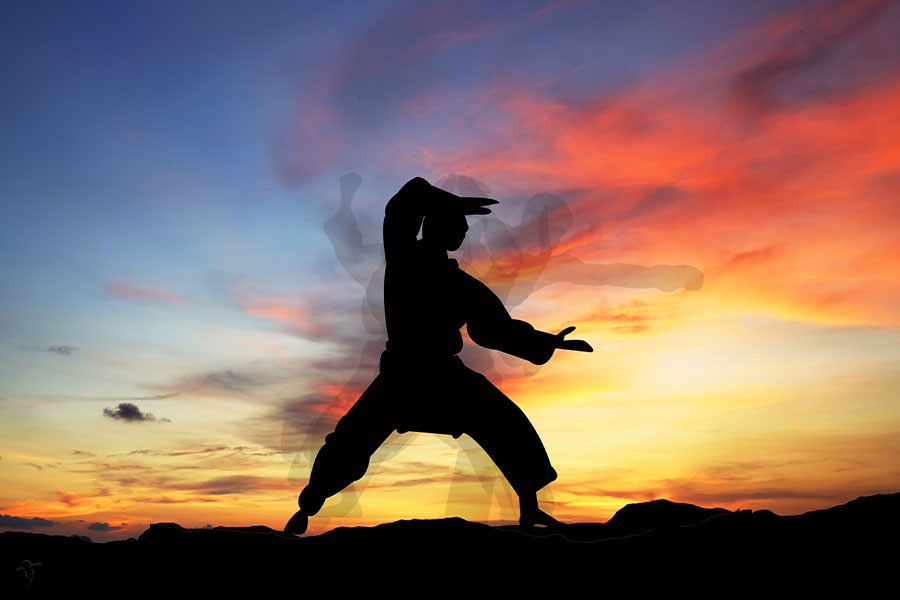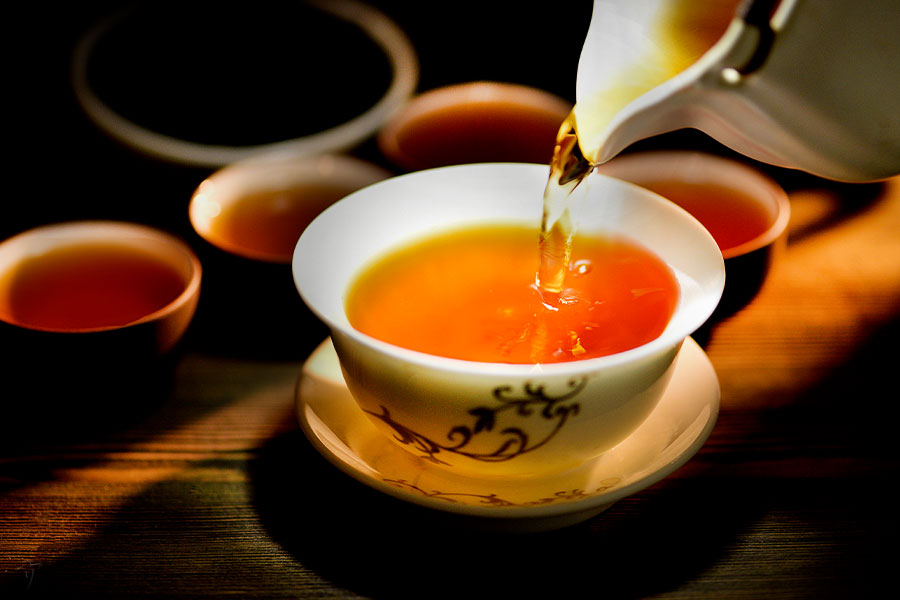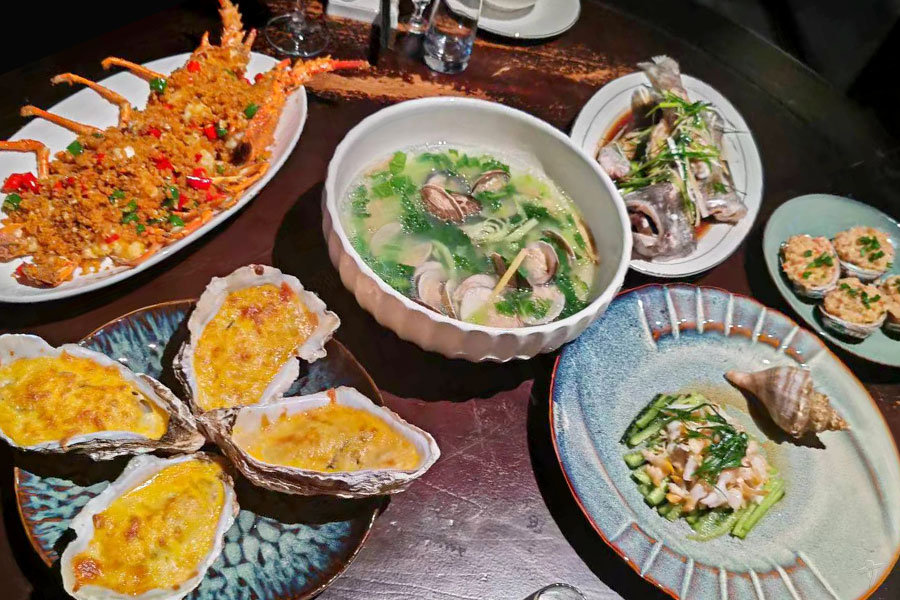Classical Sanqu (Verse for Operas) and Novels

In ancient China, novels are seen as the talks of the streets while the verse for operas the unpresentable and cannot appeal to refined taste; they are developed slowly for a long time till the dynasties of Yuan, Ming and Qing with a good deal of great litterateurs and works.
Verses for operas (or Sanqu, Chinese:散曲) are developed from Ci, and became a natural and conversational style with lots of slangs. It can be divided into two types, lyrics to be sung, and plays for operas, of which plays obtained a higher achievement with some renowned writers. The Plays for operas are the greatest achievements in the literature of Yuan Dynasty (1206-1368) that had a far-reaching influence on the later development of play-writing and acting as well as on the rise of diverse operas. 345 plays have been handed down today, 63 of which were written by the well-known playwright Guan Hanqing (Chinese:关汉卿, 1229-1297). Most of his plays convey his indignation and hatred for the oppressors and his deep sympathy for the oppressed, singing the praises for the persevering and resourceful struggles of the oppressed. His Snow in the Summer (Chinese:《窦娥冤》) and Wang Shifu’s the Western Chamber (Chinese:《西厢记》) are masterpieces widely read over the centuries, and have remained important programs on the stage.
Novels developed slowly in the long history. Short stories and myths are the main forms in the field before Yuan Dynasty; chapter novels or full-length novels were created in Yuan Dynasty that pushed the novels to a new development. The Ming and Qing dynasties are a great period of novels with numerous famous works. Novel writing is mature with the appearance of the four great novels in Ming Dynasty (1368-1644), Romance of the Three Kingdoms (Chinese:《三国演义》) by Luo Guanzhong (Chinese:罗贯中), Water Margin, or All Men are Brothers (Chinese:《水浒传》) by Shi Naian (Chinese:施耐庵) , Pilgrimage to the West (Chinese:《西游记》) by Wu Chengen (Chinese:吴承恩) and Jin Ping Mei (Chinese:《金瓶梅》) by Xiao Xiaosheng (Chinese:笑笑生). In Qing Dynasty (1636-1911), famous works are The Scholars (Chinese:《儒林外史》), a satirical novel by Wu Jingzi (Chinese:吴敬梓), A Dream in Red Mansions (Chinese:《红楼梦》), a masterpiece of Cao Xueqin (Chinese:曹雪芹), and Pu Songlin’s (Chinese:蒲松龄) collection of short stories, Strange Tales from the Carefree Studio (Chinese:《聊斋志异》) which takes material from stories about ghosts and fox spirits to censure the evils of the society in which he lived.
Romance of the Three Kingdoms, Water Margin, Pilgrimage to the West and A Dream in Red Mansions are renowned as the Four Masterpieces of Ancient Chinese Literature, of which A Dream in Red Mansions is a monument work which has push the Chinese literature to a new peak. It boasts a high artistic quality in the verses, ditties, odes and songs; with unique characters and eternal artistic charms in both content and form, it has a firm place in the world literature.
Related Readings
Top Topics

Chinese Kung Fu
Far and wide known as Kungfu (功夫) all over the world, Chinese martial art is also called Wugong (武功) or Wushu (武术) at home by Chinese people. It ca...

Chinese Tea
Being a vivid Chinese cultural specialty as well as Kungfu and traditional Chinese medicine, Chinese tea has been being developed in China for a lo...

Chinese Cuisine
"Food is the first necessity of the people" is a famous Chinese old saying, which reflects that Chinese have had paid much attention to food si...




